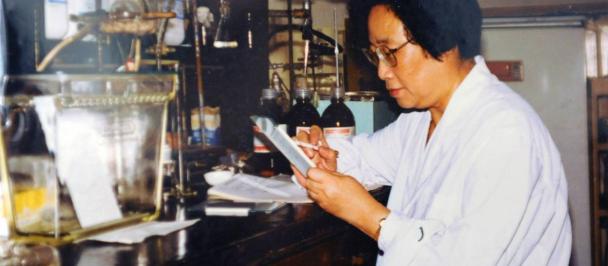How HER Digital Future is empowering young girls across China
Girls x STEM = Infinite Possibilities
October 9, 2023
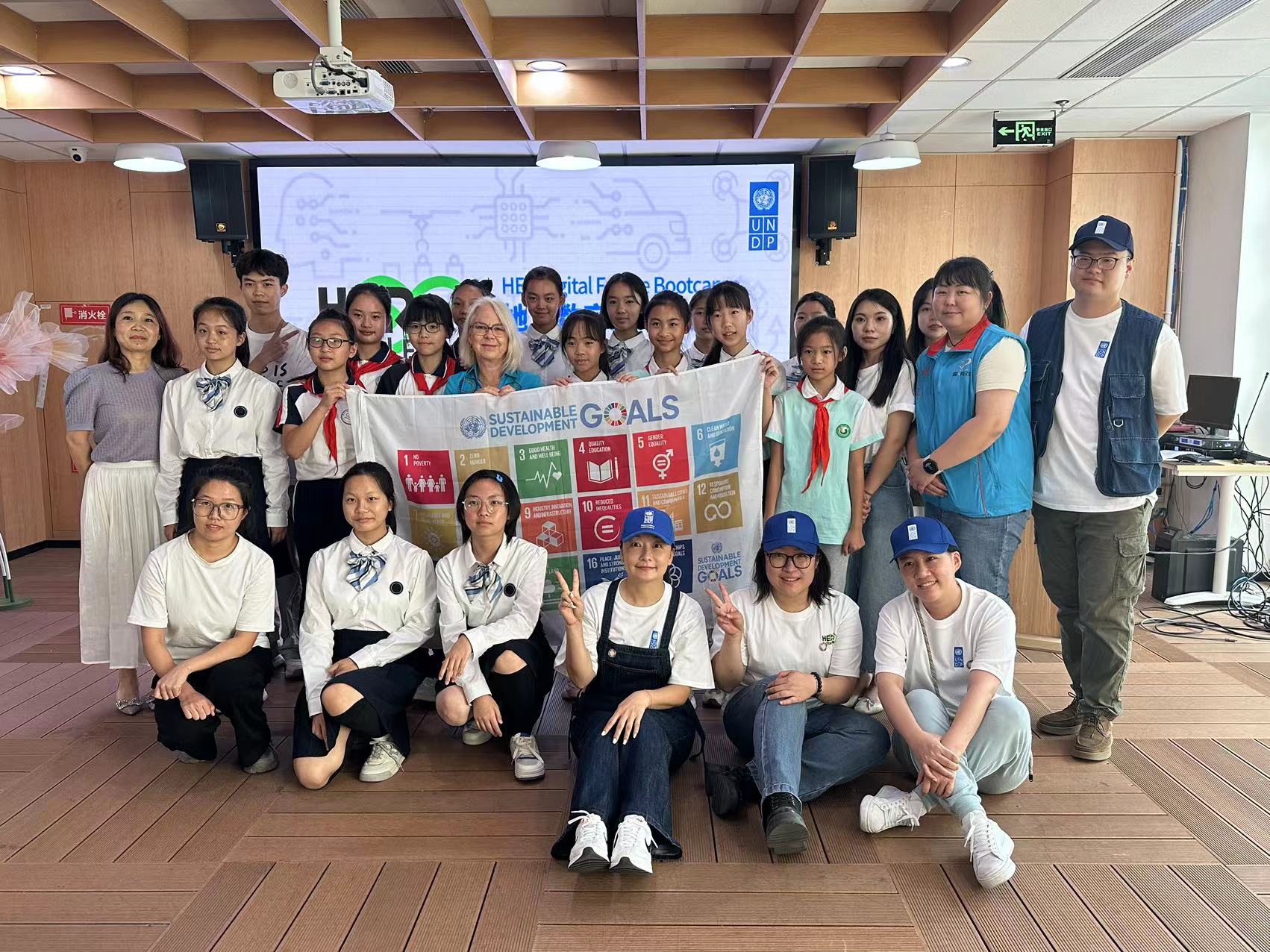
UNDP staff with HER Digital Future participants in an offline bootcamp in Chengdu, China
Women and girls are underrepresented in STEM (science, technology, engineering, and mathematics). Globally, girls only account for around a third of students enrolled in STEM fields in higher education, and less than a third of STEM researchers are women. In the Asia Pacific region, this number is even lower. Here in China, only 5% of members at the Chinese Academy of Engineering are women.
With the rapid pace of technological change and innovation increasingly shaping our world, gender equality in STEM is critical to ensuring that women, particularly those in the most vulnerable communities, have access to the opportunities of tomorrow and are included in how the future is designed.
As such, this year, UNDP China, with the help of local NGOs and volunteers, initiated HER Digital Future – a new youth program aiming to bridge the digital divide and promote girls’ engagement in STEM. The bootcamp targets girls, aged 12 to 18, especially in rural and underdeveloped areas throughout China, to increase their digital literacy and knowledge of key STEM topics, enabling them to explore how digital tools can be utilized to create solutions that advance sustainable development.
Zhuoma, Xinting, Xiaomeng, Xinyi, and Xianyan, are five of the girls who took part in the HER Digital Future bootcamp. Although they come from different places and backgrounds, they share one goal: to help their local communities and further advance the SDGs through the use of digital technology.
We recently had a chance to talk with the girls to learn about their stories and hear their thoughts and reflections upon completing the bootcamp:
Cai Zhuoma
"What I learned at the HER Digital Future Bootcamp has changed my personal goals. In the past, I might have considered going out to work after finishing the ninth grade, but now I realize that studying is a very important thing, and I want to work hard for it."
These are the words of Cai Zhuoma, a 16-year-old Tibetan girl from Qinghai Province. While taking part in the HER Digital Future bootcamp, she learned, for the first time, how to design small programs and use technology to solve practical problems. After speaking with some elderly members of her community, she discovered that they face several challenges living alone, such as inconvenience in mobility and lack of communication with others. Inspired by Sustainable Development Goal (SDG) 3: "Good Health and Well-being," she designed an APP with several functions, including an emergency call function and a mental health counseling service, that aim to better help the elderly connect with the outside world.
Zhuoma said the bootcamp sparked her interest in learning STEM and allowed her to see the world from a wider perspective. The support and encouragement from the volunteers re-sparked her interest in reading. Zhuoma hopes to become a teacher in the future to help more children from rural areas gain access to quality education, helping to achieve SDG 4.
“Girls should actively learn STEM-related content and advance their educational level to promote gender equality,” she said.
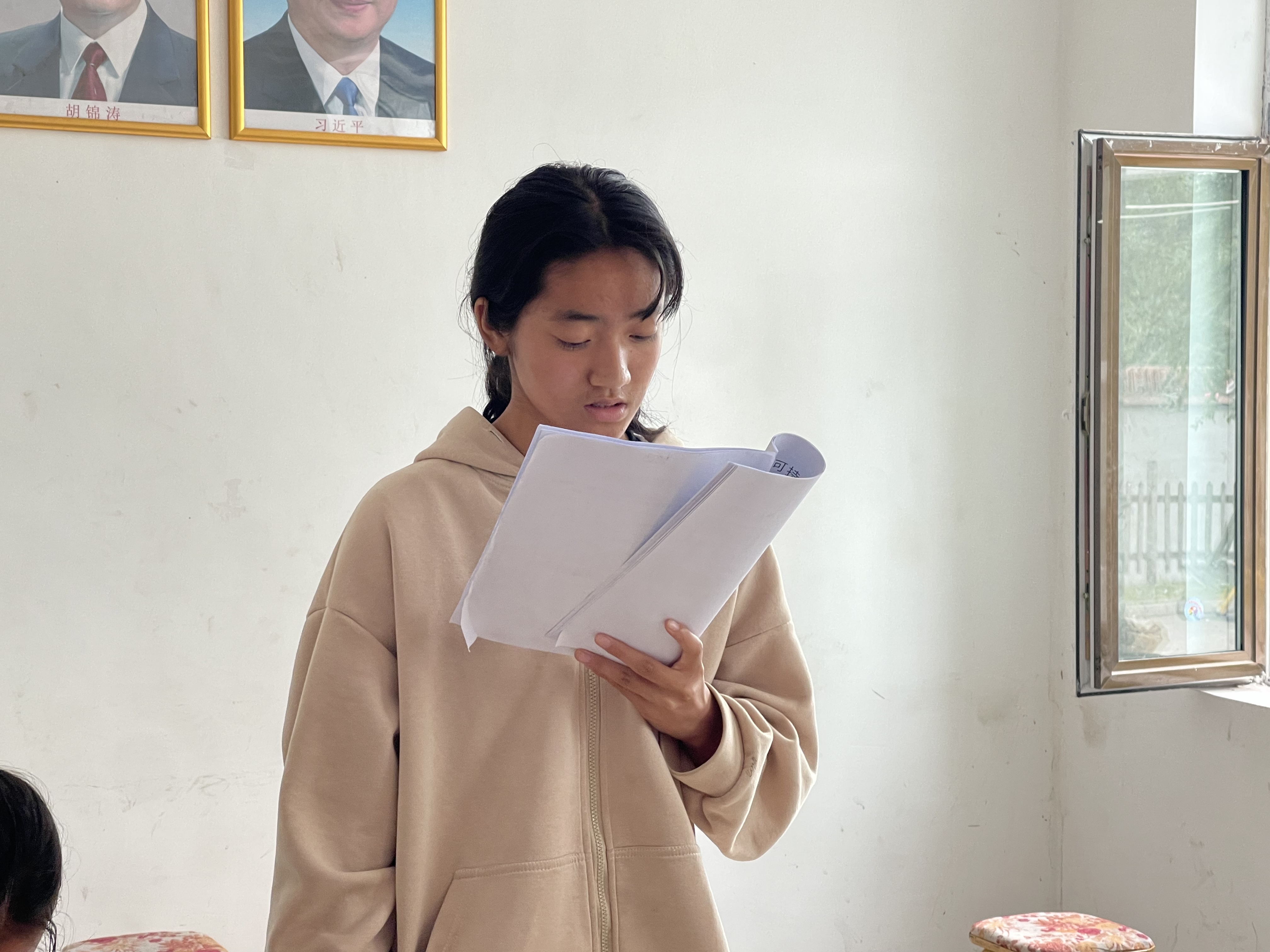
Cai Zhuoma participating in HER Digital Future bootcamp
Li Xinting
"Studying STEM courses can make girls more independent, allowing them to see the world from a broader perspective, and help them develop skills in their own fields of interest, " said Li Xinting, a 13-year-old Tibetan girl from Xiatan Village, Qinghai Province.
While learning about the 17 SDGs during the HER Digital Future bootcamp, SDG Goal 2: "Zero Hunger" was the goal that resonated with her the most. Coming from a family of farmers, she was aware of the hard labor that went into growing crops and the harsh working conditions of agriculture.
Xinting noticed that the farmers around her spent most of their time playing on their mobile phones after work. They lacked opportunities to engage in interpersonal communication and participate in entertainment activities, which impacted their physical and mental health. She therefore designed an APP to help enrich the lives of the farmers by enabling them to participate in group activities, such as learning yoga or square dancing, with the goal of enhancing communication in real life and bringing the villagers closer together. Xinting also hopes to attract international users from around the globe to use the APP, so that the villagers can have a better understanding of the outside world and express themselves more confidently.
Xinting’s dream is to become a police officer one day to help more people in need.
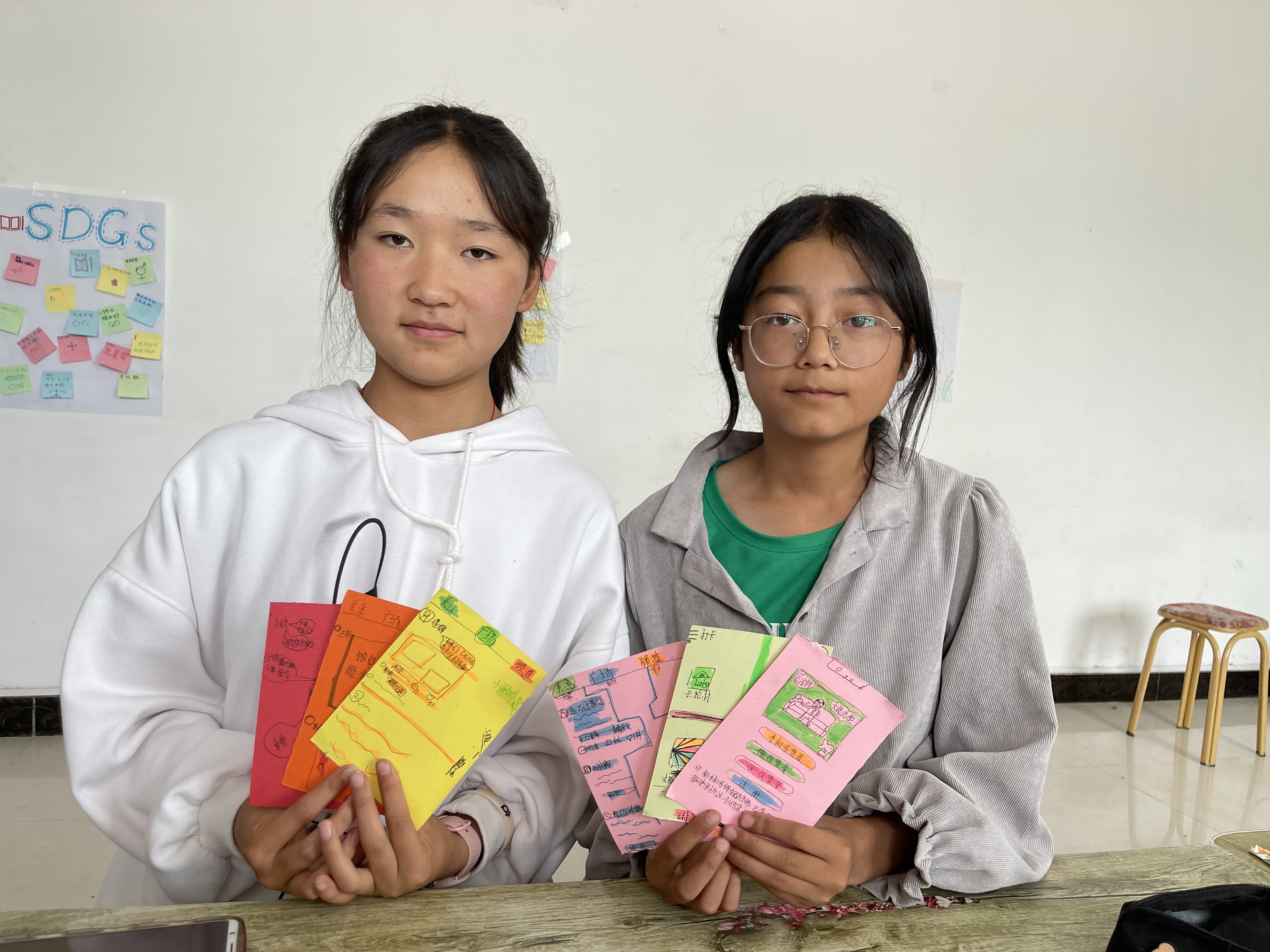
Li Xinting (left) and Li Yuqin (right)
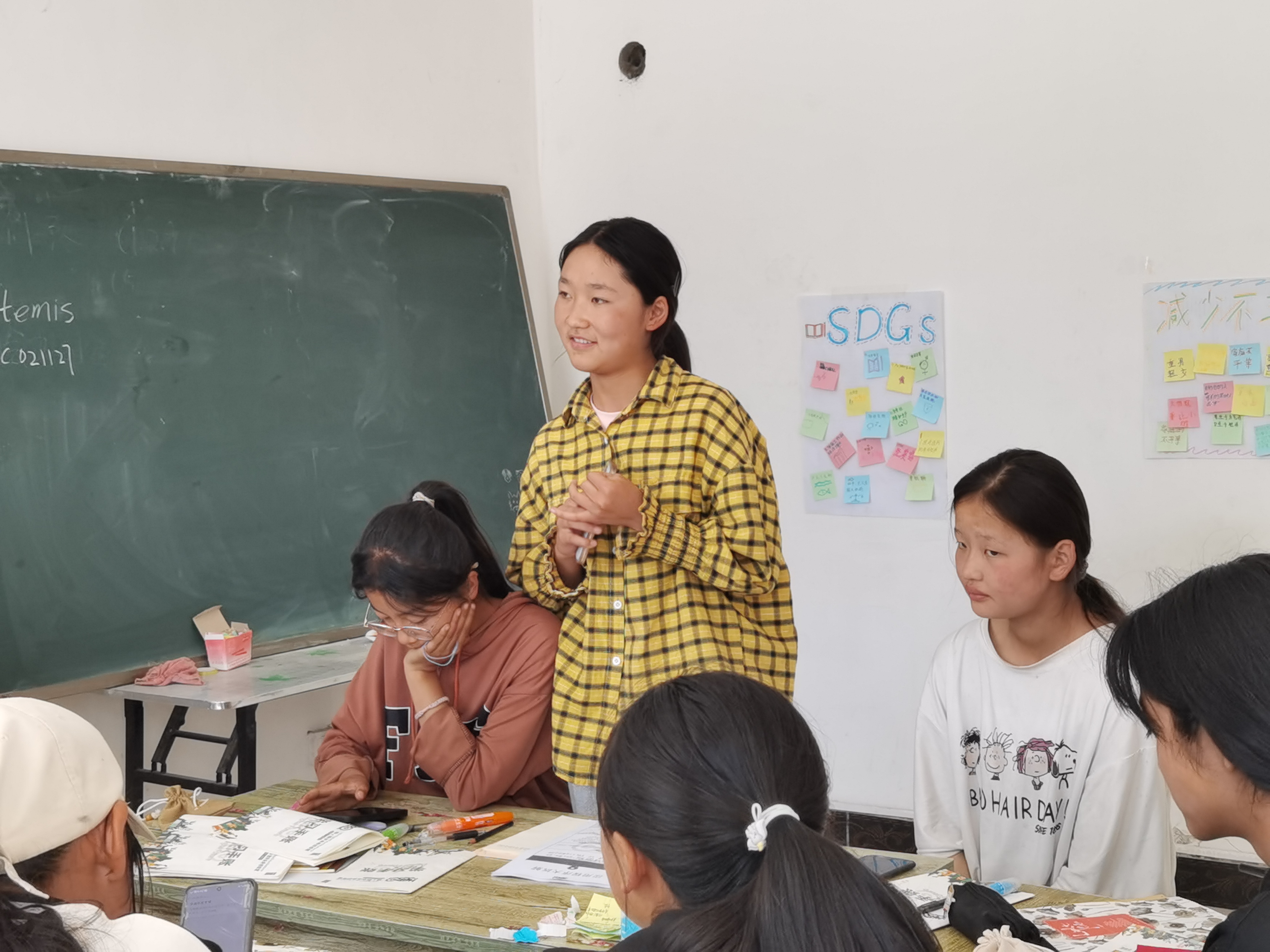
Li Xinting participating in HER Digital Future
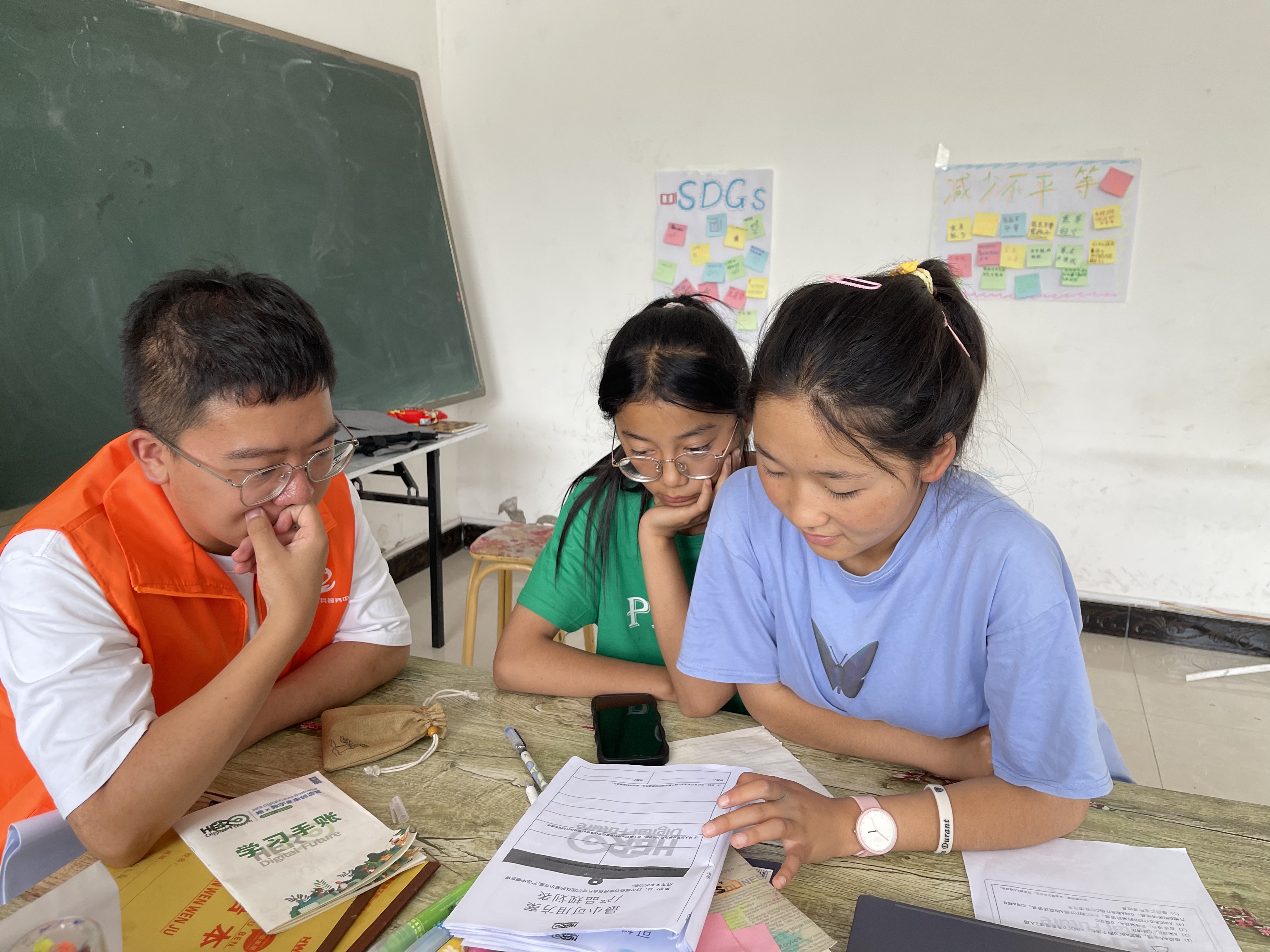
Li Xinting (right) and Li Yuqin (middle) with Zhang Hao, a volunteer from HER Digital Future (left)
Mao Xiaomeng
"As long as they have goals and dreams in their hearts, girls can definitely achieve great things in the technology industry,” said Mao Xiaomeng, a 17-year-old from Wandi Village, Ningbo City, Zhejiang Province. “The bootcamp’s courses have provided girls with opportunities to understand and participate in the technology industry, kindling everyone's enthusiasm for learning and independently exploring the endless possibilities.”
Xiaomeng designed an APP to help further advance SDG 13: “Climate Action” and SDG 11: “Sustainable Cities and Communities” by addressing the issue of waste classification. Hoping to "turn waste into treasure" and transform kitchen waste into useful organic resources, Xiaomeng incorporated a special points system in the APP to encourage residents to take part in recycling. She observed that many residents have a very limited awareness of waste classification, so she is promoting her APP with the hopes that residents will download and use the program.
In her free time, Xiaomeng enjoys painting. She plans on using the STEM knowledge she learned in the bootcamp to improve her painting and video editing skills. She hopes to have more opportunities in the future to learn STEM to increase her knowledge and become a professional animator and video editor to create videos and share them online.
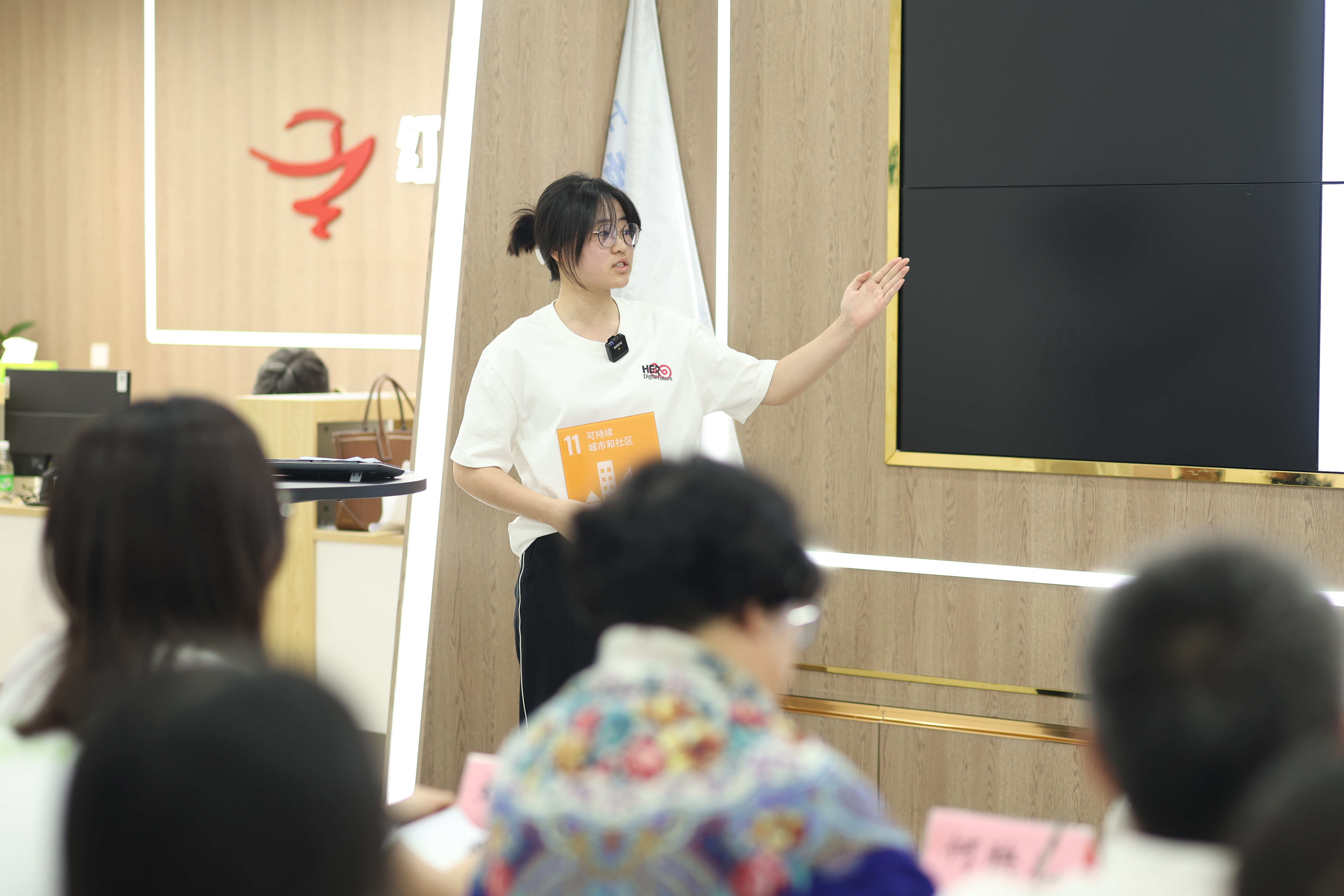
Mao Xiaomeng presenting her design proposal
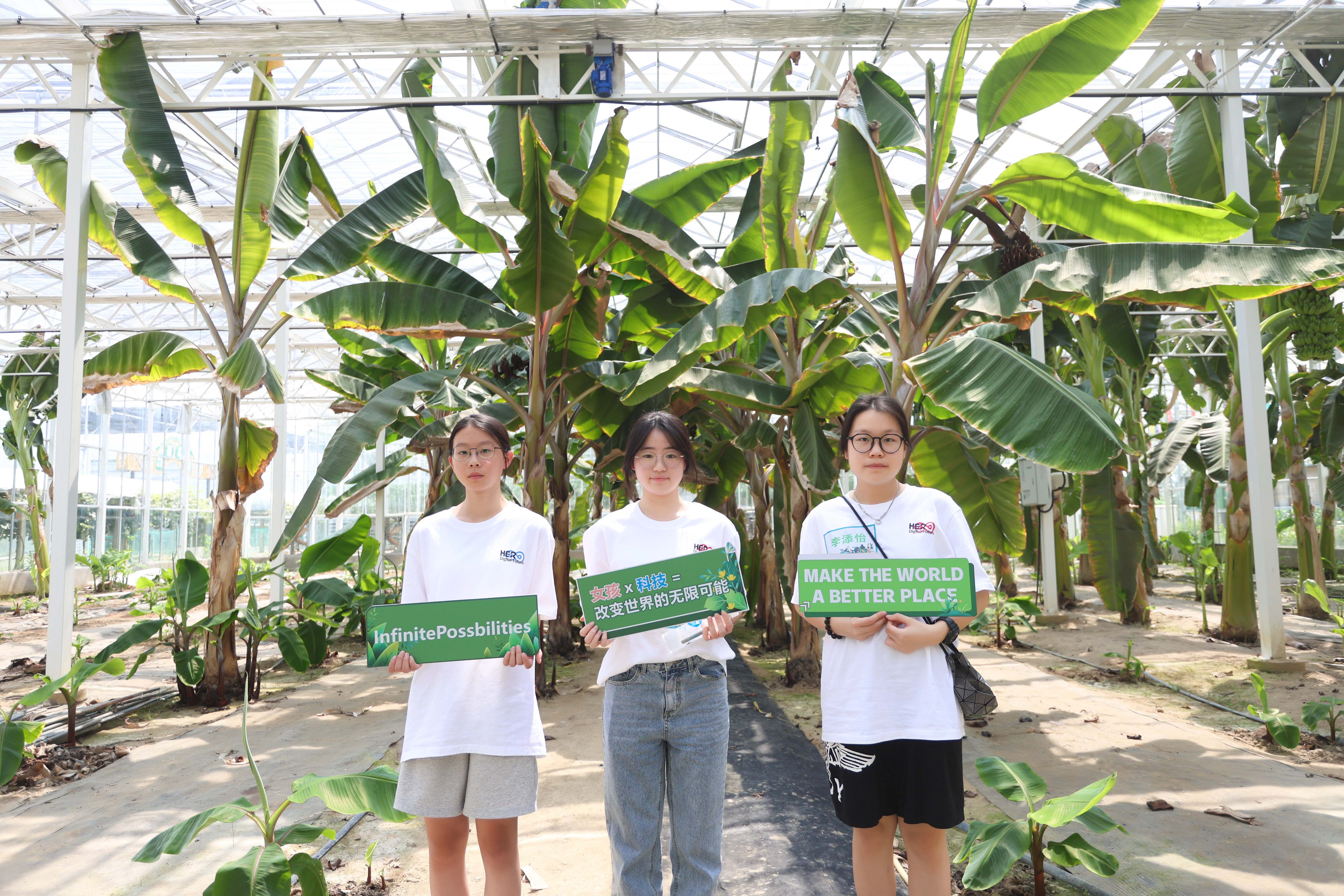
Mao Xiaomeng (middle) and HER Digital Future participants Li Tianyi (right) and Pan Aixue (left)
Li Xinyi
“As teenagers in the current era, we girls must also embrace a determination to change the world. But before we do that, we must learn various methods and skills that will allow us to shape the future with our voices and actions,” explained 13-year-old Li Xinyi, from Neixiang County, Nanyang City, Henan Province.
Xinyi used the knowledge she learned in the bootcamp to design an APP that provides mental health services for women aged 12 to 20. In order to improve the accuracy and design of the APP, Xinyi and her team members overcame their fear of social interaction and conducted interviews with diverse groups of people in large shopping malls for research, collecting useful information and feedback. Knowing that girls in this age group experience social isolation, they designed an APP function that allows users to send letters, chat, or play games together.
In the bootcamp, Xinyi said she improved her organizational and leadership skills, and at the same time, developed a deeper understanding of the benefits of digital technology. She believes that the more women participate in technology fields, the more software can be designed to meet the actual needs of women, which will help improve their decision-making power, gradually eliminating gender inequality.
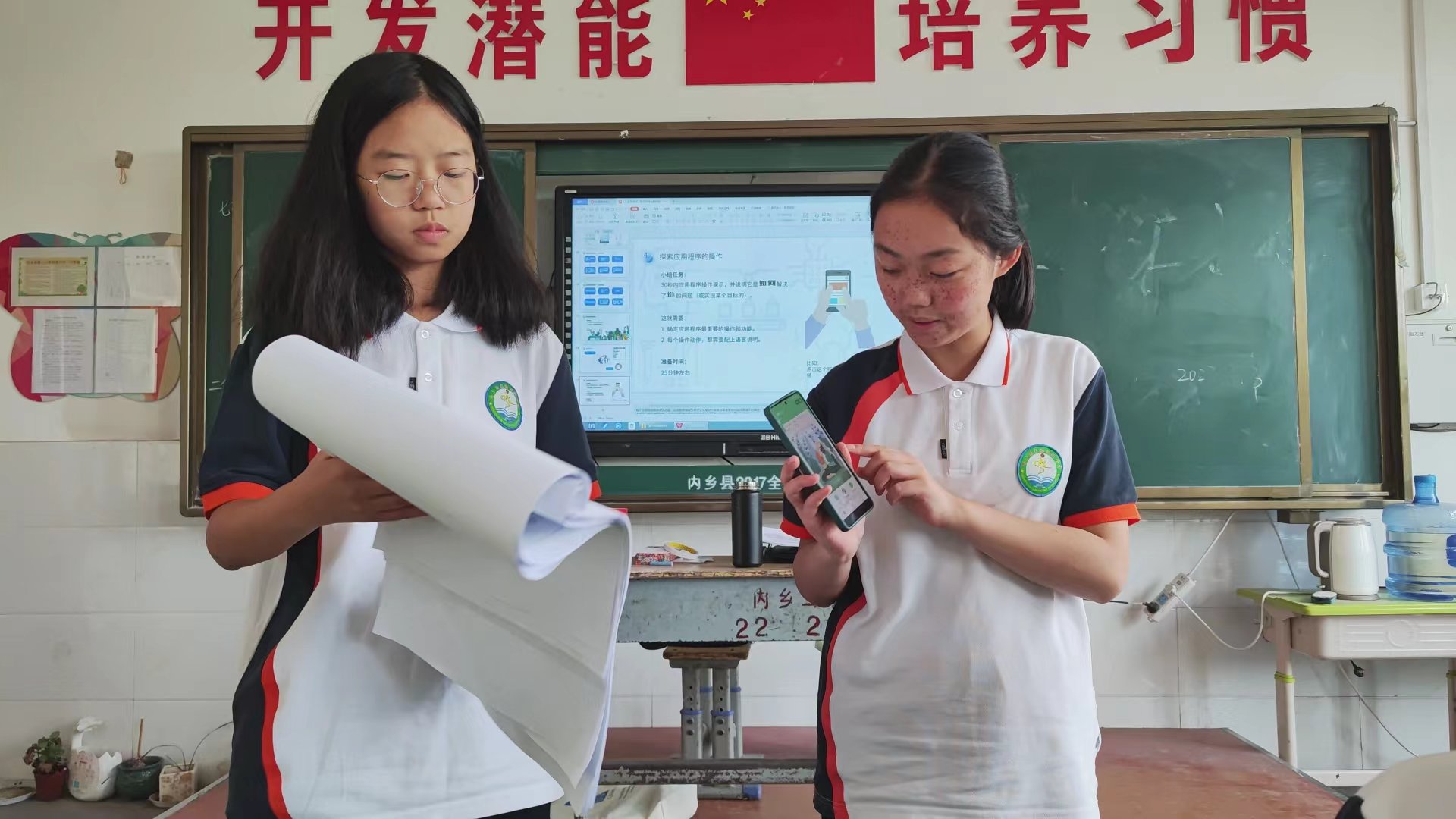
Li Xinyi (right) and Zhang Heyunxiang (left)
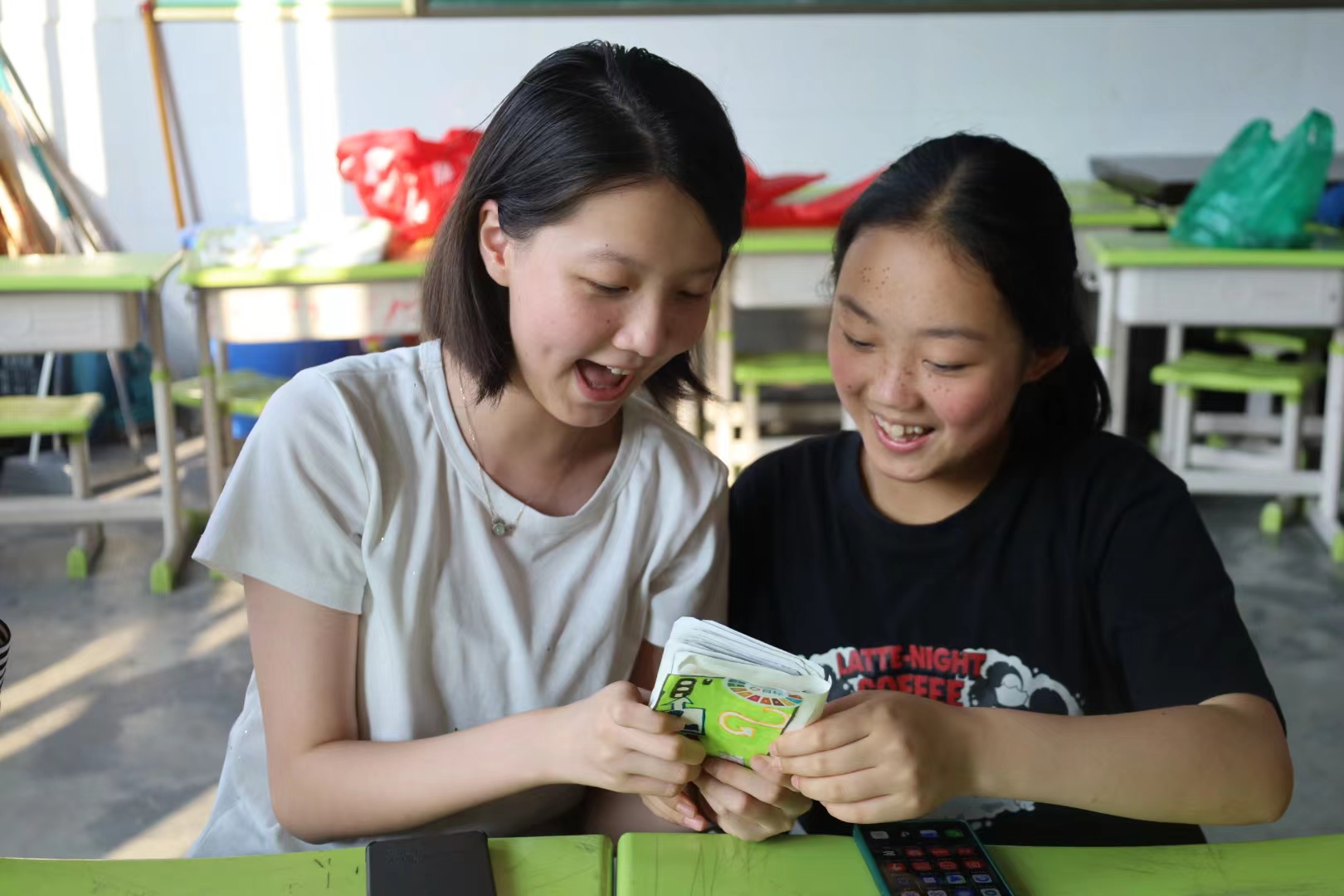
Li Xinyi (right) and Li Jiayi (left)
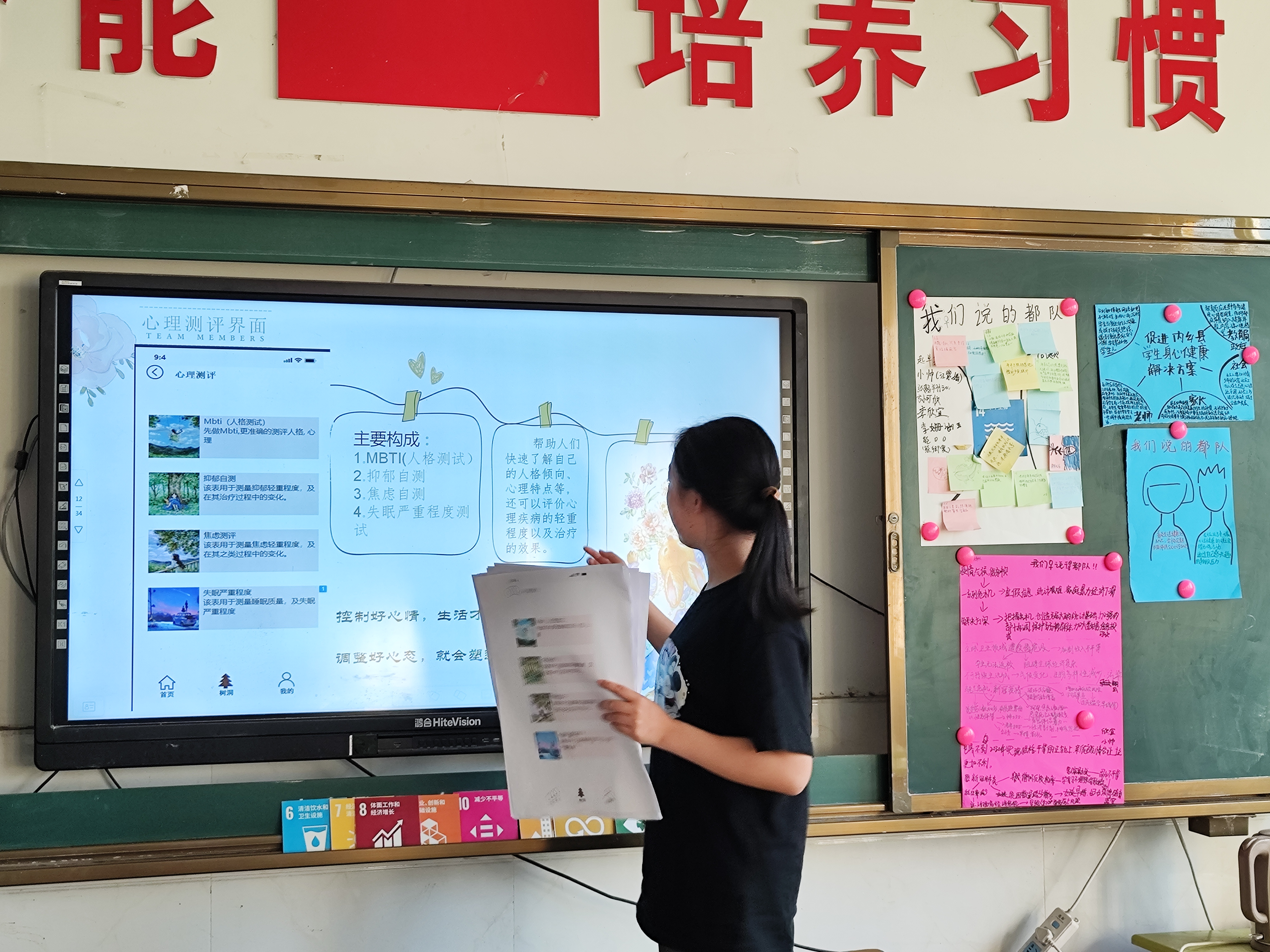
Li Xinyi presenting her APP design
Chen Xianyan
Chen Xianyan is a 13-year-old from Zhaotong City, Yunnan Province. At the age of one, she survived severe burns but became severely disabled and lost most of her fingers. After learning about artificial intelligence (AI) through HER Digital Future, Xianyan was thrilled because she felt, for the first time, that realizing her dream of becoming an artist was possible by using AI to create art. She, along with her teammates, used AI tools to complete their design poster. She also drew an image, that had previously only been in her imagination, which they titled Girls and Technology. She said the image reflected her feelings: like a person in a pit, seeing the light of technology penetrate the darkness, giving her hope.

Chen Xianyan's AI artwork Girls and Technology
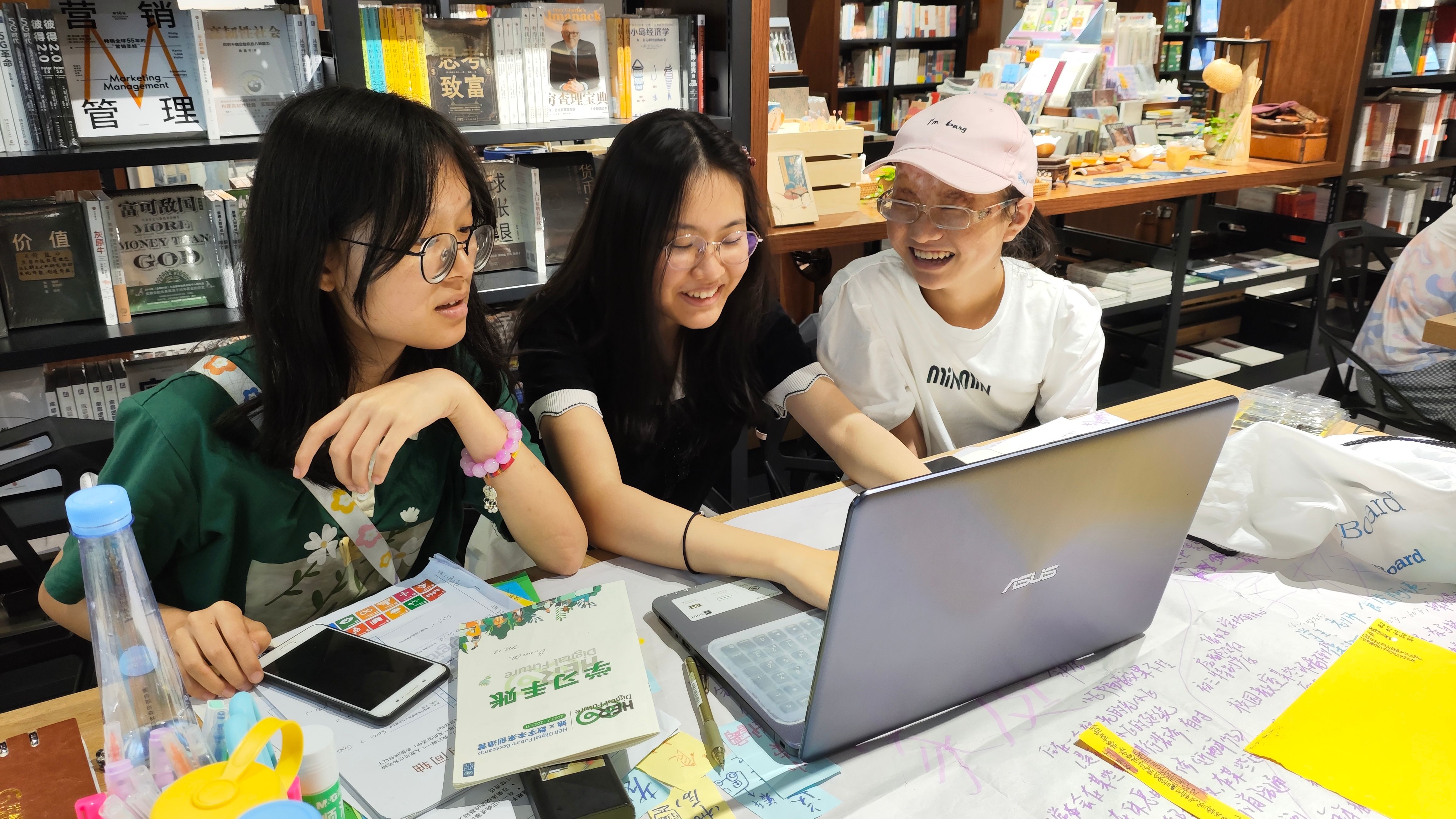
Chen Xianyan (right) with Xiong Jingyi (middle) and Xiao Chuyuan (left)
Authored by Farah Mubarak, Anqi Yuan, and Chen Litian
At UNDP China, we are committed to making quality education accessible to youth in vulnerable communities. Through HER Digital Future, we hope to equip young girls in rural areas with the skills and knowledge that will enable them to potentially become active members, future leaders, and decision-makers in their societies, helping to create a more equitable future, in which women and girls can thrive.
About HER Digital Future Bootcamp
As a recipient of funding under the Digital X initiative of UNDP’s Chief Digital Office, UNDP China is promoting greater engagement of girls in STEM through a new youth program called HER Digital Future. We have invited girls aged 12 to 18 from all over China to participate in an online/offline bootcamp that aims to increase their digital literacy and knowledge of key STEM topics. The bootcamp is teaching participants about the SDGs and how digital tools can be utilized to create solutions to advance sustainable development.
Offline, HER Digital Future is focusing on bridging the digital divide through in-person workshops organized in rural locations throughout China with the help of UN Volunteers, UNDP’s Movers Programme, and others to ensure that no one is left behind.
In addition to the offline camps, an online learning platform on tech-for-good and the SDGs has also been created. The HER Digital Future curriculum, designed with support from Technovation and 1KG Box, is accessible on this platform as well for students from anywhere in China to participate in the program.
So far, more than 300 volunteers from different provinces in China have signed up to take part in the program. Nearly 20 offline bootcamps have been concluded with more than 30 Tech4SDG student proposals submitted. We are giving special attention to the underdeveloped and less resourceful parts of China, such as Qinghai, Guizhou, Yunnan, and Sichuan. The program aims to reach around 1,500 students, including 750 students from rural areas.

 Locations
Locations


